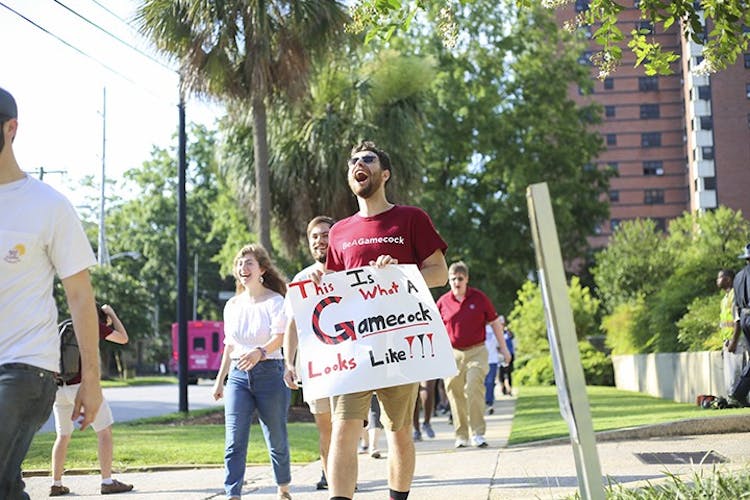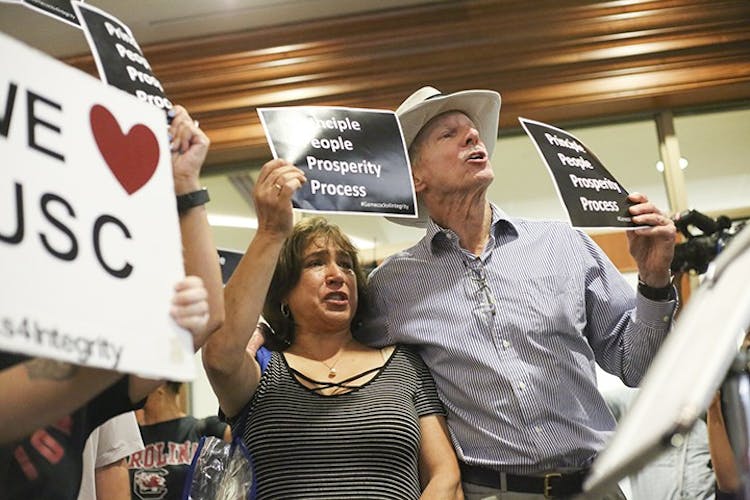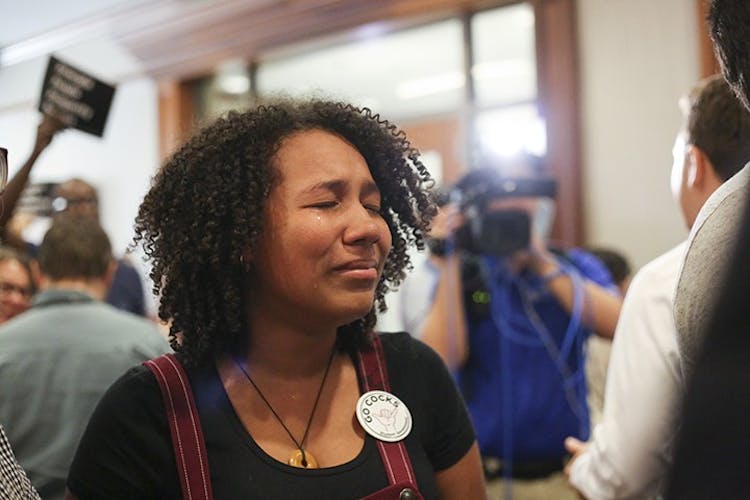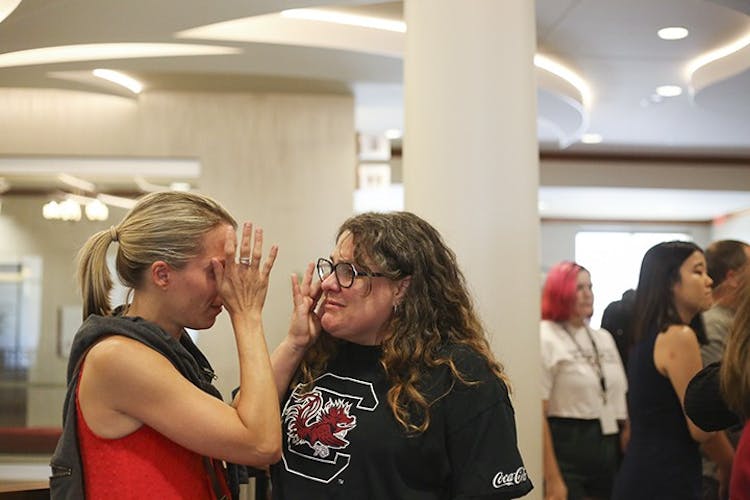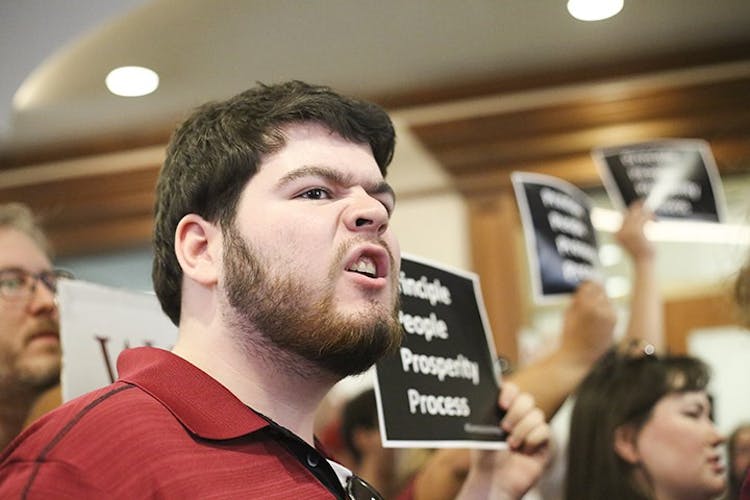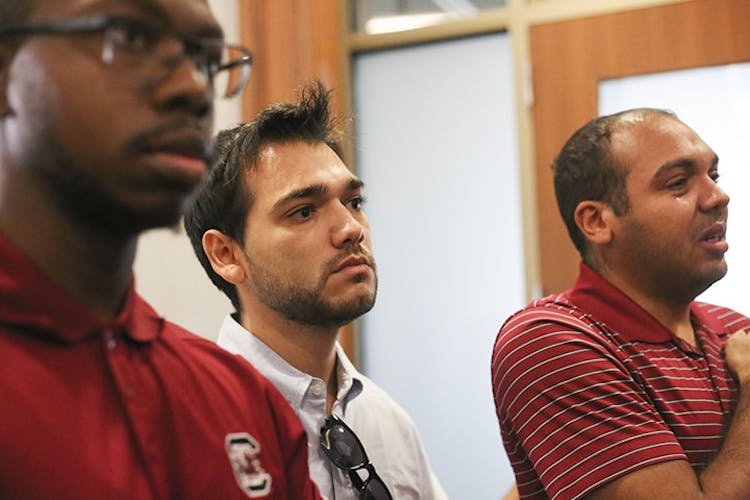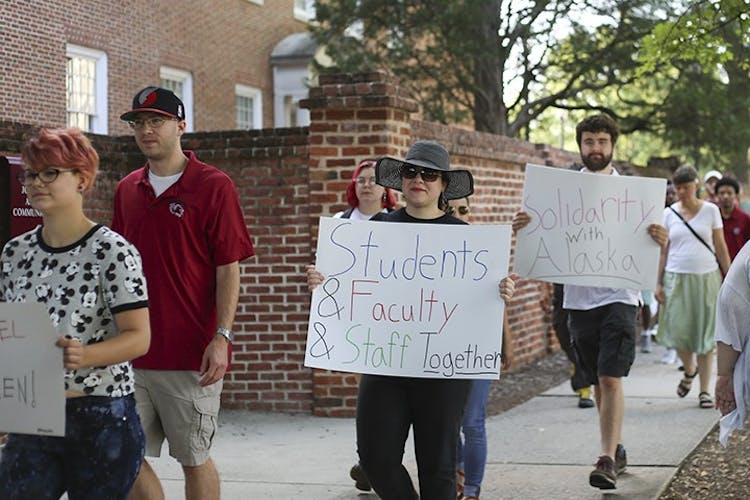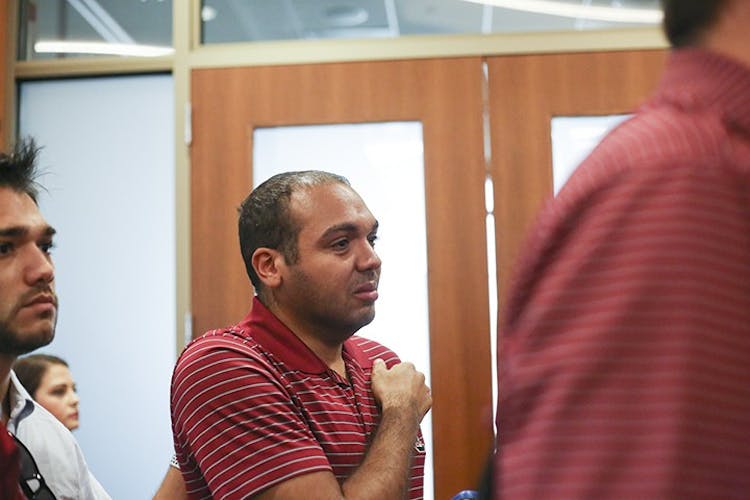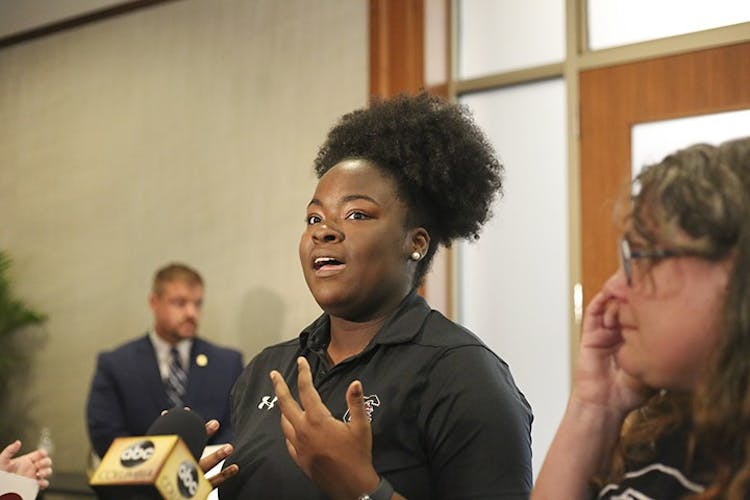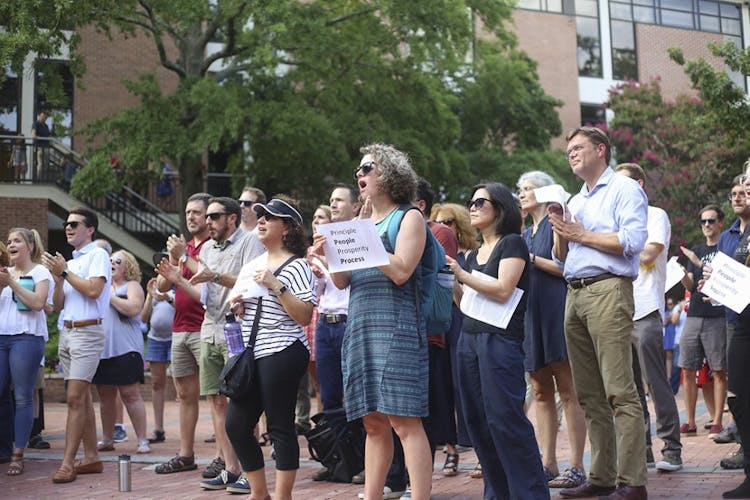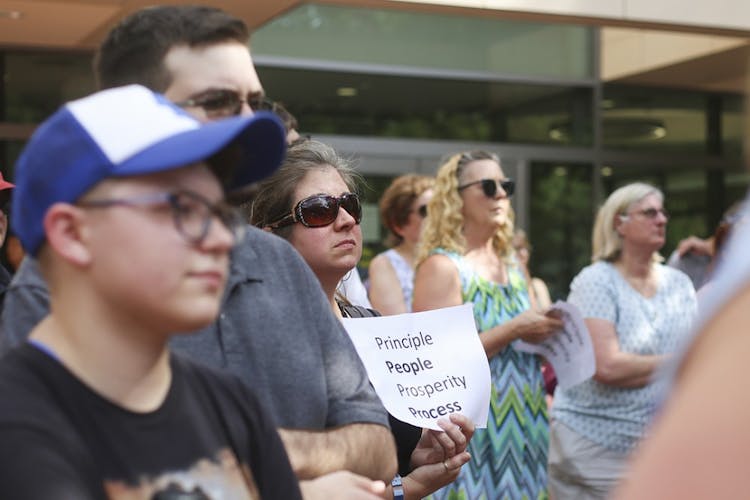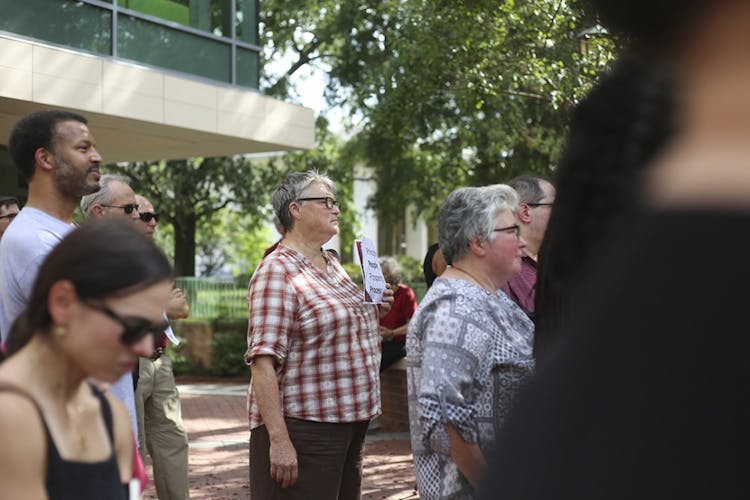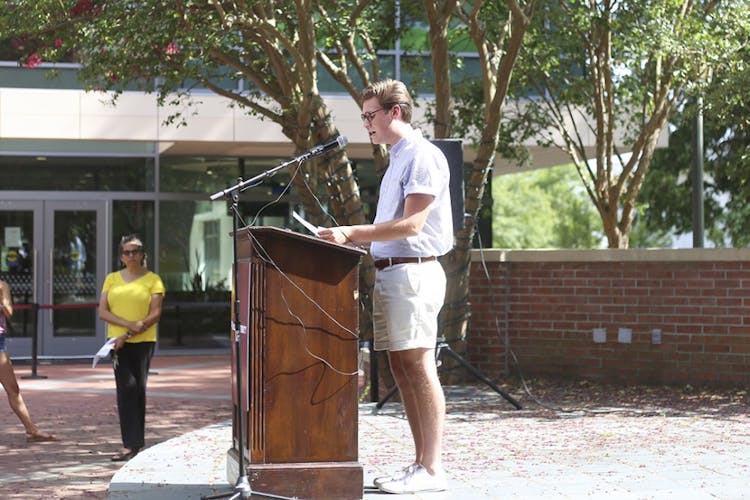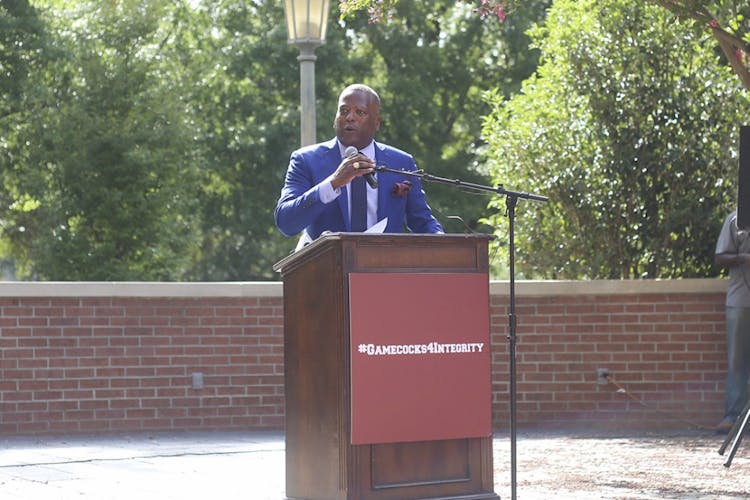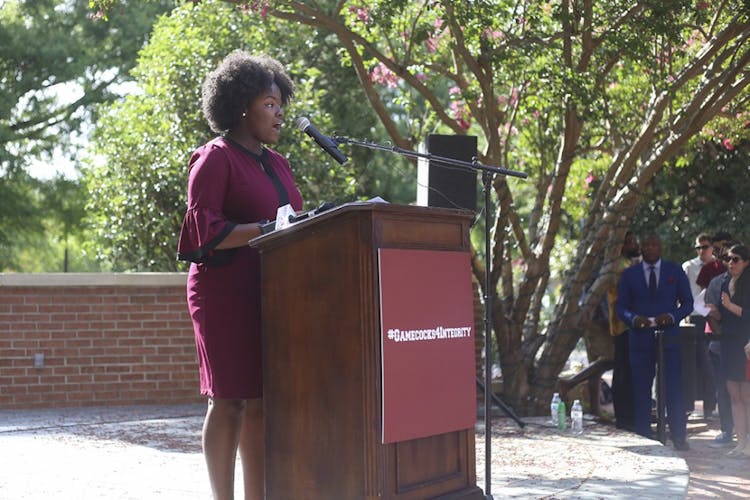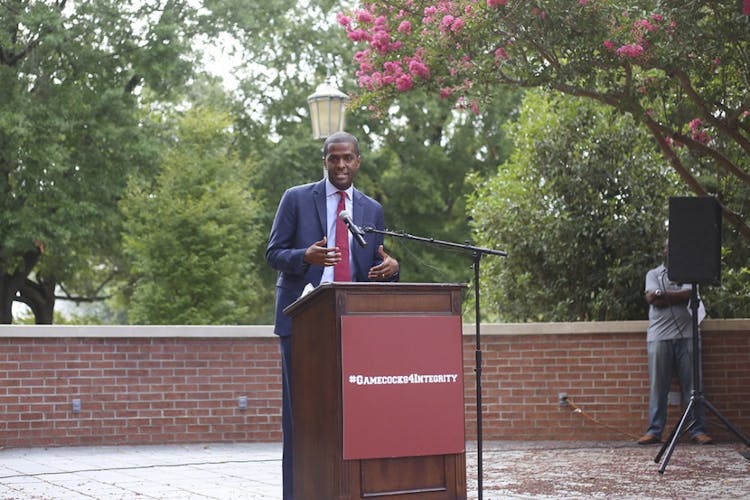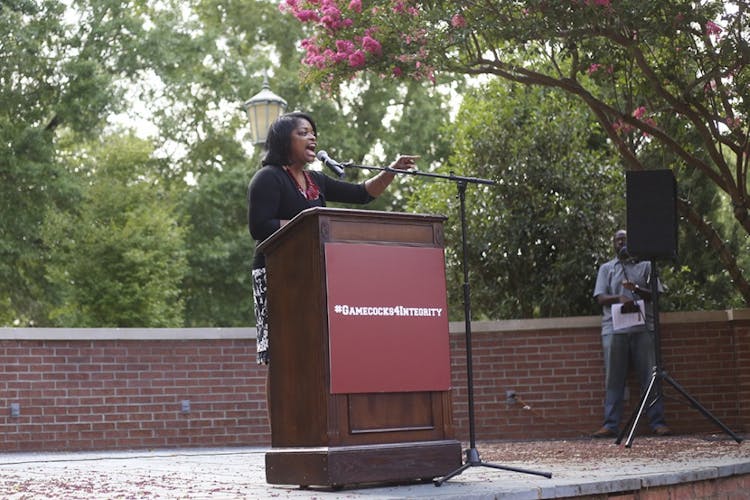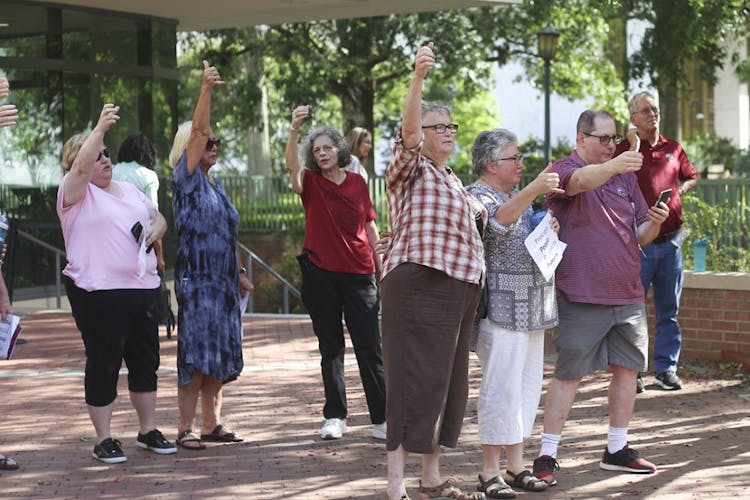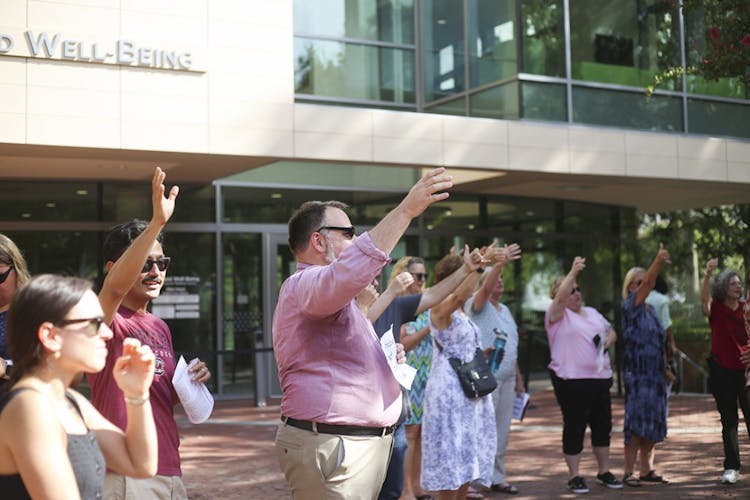In the summer of 2019, a group of students protested the hiring of University President Bob Caslen. Two years later, tensions between students and the university are boiling again over sexual harassment allegations against faculty and staff members.
In 2019, the group known as Next Era USC was a grassroots movement that came together when finalists for the president’s position were on campus. Students protested a rushed vote by the board of trustees in April 2019, which resulted in the vote being postponed.
“We pulled that protest together in under an hour,” Lyric Swinton said, about the initial protests that happened in April 2019. Swinton, who graduated in August 2020, was one of the leaders of the movement.
Swinton said protesting changed her life and career path, moving her toward social justice and away from her major, sports and entertainment management. She said it also showed her students can shape the university in many ways, not just in the traditional roles they think are most powerful.
“A lot of different groups were planning to go out there, but it was no organized movement," Swinton said. "It really just took everybody saying like 'Hey if you're planning on going and you're planning on going, if we all go together, there’s gonna be strength in numbers here,'” Swinton said.
The board of trustees hired Caslen during the summer.
“I did student government for a long time because I felt like that was the only way I could get a voice, like that was the only way that I would get a seat at the table as a student," Swinton said. "But that protest I felt such a rawness and a deep connection to the university in a completely new way because, at the time, I had no title, I wasn’t connected to any organization. I was just me,” Swinton said.
Lawsuits filed in December 2020 made public sexual harassment allegations against David Voros, a professor in the School of Art and Visual Design (SAVD).
A group of students from different organizations, such as College Democrats and Planned Parenthood Generation Action, formed the Coalition to Fire David Voros.
“We decided we can get together, we can make a social page and actually spread the word on this, and do something about it instead of just being pissed,” second-year journalism student Charlotte Morrison said.
Members created an Instagram and Twitter page and created a petition, which currently includes more than 3,000 signatures. The group’s Instagram and Twitter have a combined following of more than 1,000 people.
The group’s top priority is to get professors such as Voros and those who enabled him out of the classroom and removed from payroll, and for the university to overhaul the process for reporting sexual misconduct.
“The main thing is to get some form of justice for the survivors and also ensure that our campus is safe for students,” Victoria Ponds, third-year environmental science student, said.
Caslen addressed the coalition’s recent march on campus in an email to students.
“I acknowledge and understand your desire for immediate terminations and outcomes, but please understand that we have a legal obligation to ensure due process,” Caslen said in the email.
The coalition does not have an official leader. According to some of the group’s most active members, around 30 people organize and contribute to the cause.
“It’s really just a team of us who show up when we’re needed,” Lauryn Workman, fourth-year history and global studies student, said.
This is not Workman’s first experience in an organic, student-led movement. She was involved in Next Era USC during her sophomore year.
“I think before I got to university, I really only saw one means for change and that would be through your typical channels like running for student government, getting elected to office, and then working with admin and only working with admin,” Workman said.
Now, she’s realized it’s possible to work “outside of the boundaries of the institution to make change.”
Ethan Magnuson, fourth-year geology and political science student, said the coalition has a lot to learn from the Next Era USC movement, which eventually died out after Caslen was elected and Next Era USC leaders chose to publicly meet with Caslen.
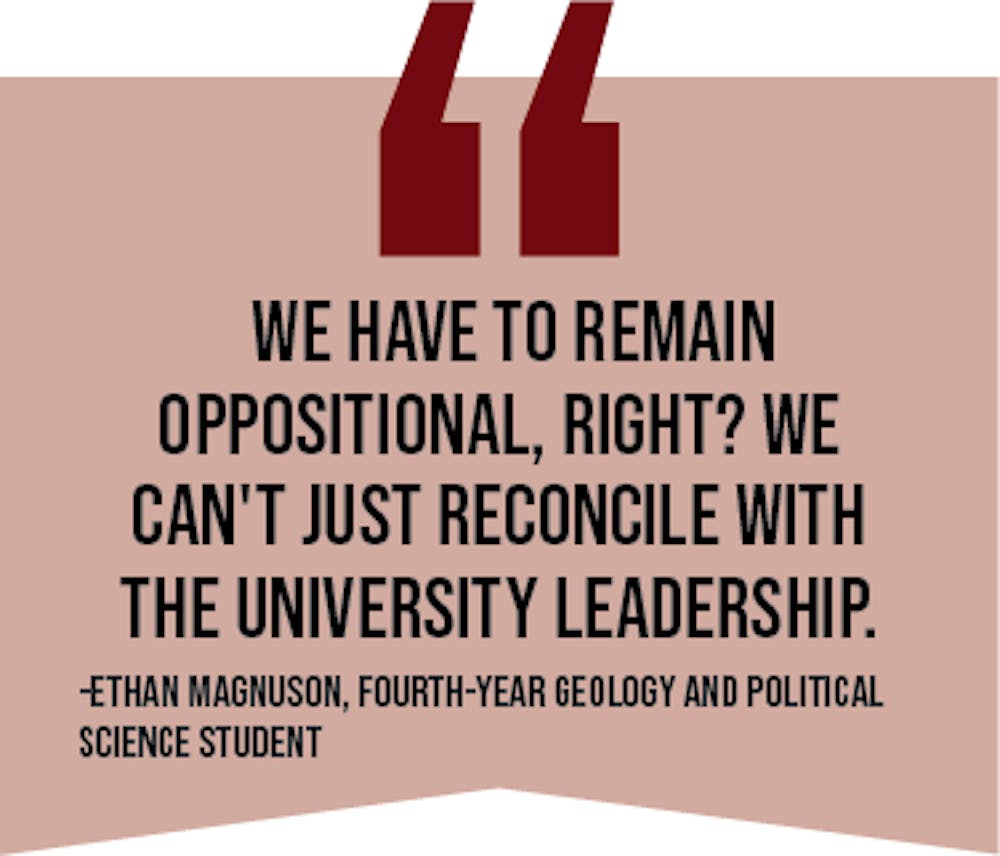
“We have to remain oppositional, right? We can't just reconcile with the university leadership,” Magnuson said.
Members of the coalition said they will continue to organize until the university meets their demands.
“USC is really counting on us to graduate and forget about it over the summer and to not come back this fall, but that’s not gonna happen,” Ponds said.

